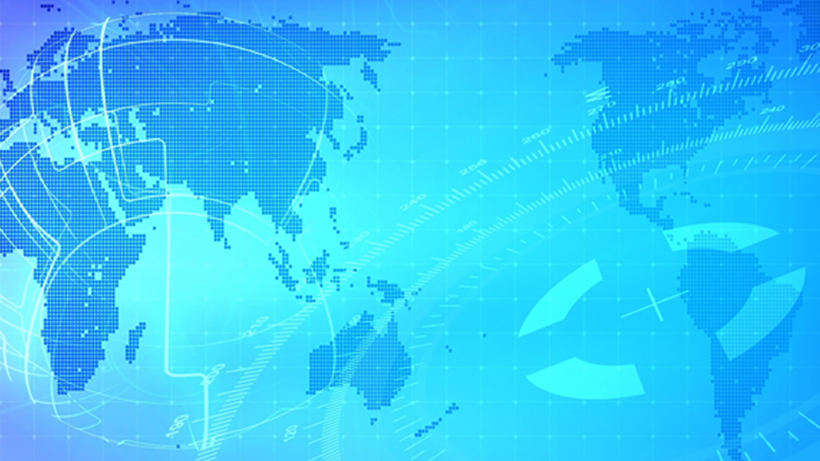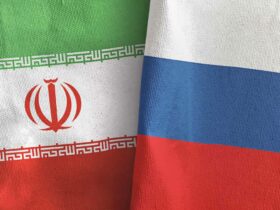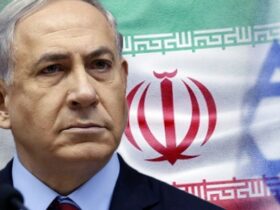Europe
Serbia: a step towards the recognition of Kosovo
On August 9, Serbian President Alexander Vučić said he was in favor of delimitation with the Albanians in Kosovo, despite the fact that this decision will likely be unpopular in the country. The decision is part of an attempt at legitimizing the occupation of native Serbian territories in Kosovo in exchange for Belgrade’s control over the northern part of the autonomous region. The outcome of such a decision could be the expulsion of the Serb population from the south of Kosovo. The Serbian Orthodox Church is against the action. The EU and NATO support this step, as this will allow them to swallow both Kosovo and Serbia. This also will make an obstacle for the promotion of Russian influence in the Balkans via Belgrade. The prospects for further fragmentation of Serbia are also not excluded. The Kosovo authorities have already announced their claims to a number of Serbian territories.
Romanian Maidan: a test of strength
On August 10, mass protests took place in Romania. The main demonstrations were in Bucharest. It is reported that during the protests, more than 450 people were injured. This and other similar rallies are held without an obvious leader, social networks are being actively used to gather the protesters. The symbol of protests was the hashtag #Rezist. The only declared political goal is the resignation of the the the reigning Social Democrats. In 2015, against the backdrop of similar protests, the Social Democratic government of Victor Ponta fell, and a “government of technocrats” led by Dacian Ciolos was installed. The majority of posts were occupied by the representatives of the structures, connected with George Soros.
Today’s protests have the same goal – to eliminate the nationally oriented government and to stop the emerging rapprochement between Romania and the countries of the Eurosceptic Visegrad group. That’s why the protests are favored by the President of Romania Klaus Johannis – the protégé of Brussels and ardent opponent of Eurosceprisism.
Putin: negotiations with Merkel
On August 18, Russian President Vladimir Putin met with German Chancellor Angela Merkel in her residence Meisenberg near Berlin. Earlier in the day, he visited the wedding of Austrian Foreign Minister Karin Kneisl. Thus, the Russian leader demonstrated that Vienna is Russia’s priority partner in central Europe.
Negotiations with Merkel touched upon the settlement of crises in Syria and Ukraine, the construction of the Nord Stream-2 gas pipeline and the future of the Iranian nuclear program. Pressure from the United States forces Moscow and Berlin to pull together, despite the difference in political style and goals.
Germany: Riots in Chemnitz
August 26 in the city of Chemnitz in East Germany, a migrant from Iraq killed a local resident. Two more local residents were seriously wounded. The killer arrived in the country in 2015 as a refugee in the open door policy, which Angela Merkel announced. This provoked mass riots of local residents. In response, the authorities blamed the ultra-right forces for inciting xenophobia. What happened in Chemnitz is a demonstration of the collapse of the liberal politician Merkel and a signal of the growth of nationalistic sentiments in response to erroneous liberal policies.
Middle East
Anti-Iran sanctions: the first stage
On August 6, the first part of the United States’ anti-Iranian “nuclear” sanctions were resumed as the US’ withdrawal from the nuclear deal with Iran in 2015 came into effect. The delivery of gold and other metals, planes, and components for the Iranian automotive industry was heavily affected. On November 4, the oil industry of Iran will also be penalized. Iran itself stated that, despite the sanctions, it will not go to negotiations with the United States despite the proposition from the US President Donald Trump itself.
US sanctions only strengthen the positions of the Iranian conservatives and weaken the positions of the incumbent cabinet of reformers, whose hopes of reaching an agreement with the West have failed. Further escalation is likely.
Yemen: Saudis kill children
On August 9 in Yemen, more than 50 people were killed and more than 70 were injured after an air raid by a coalition under the command of Saudi Arabia. 29 of those killed were children under 14 years. This has been one of the bloodiest war crimes of the Saudis against the people of Yemen. The absence of harsh reaction of international bodies and punishment for Saudi war criminals is an example of double standards in modern international relations.
Turkey and the US: the Cold War gets colder
On August 10, US President Donald Trump announced the doubling of tariffs for steel and aluminum for Turkey. He linked this step with the trial of Pastor Andrew Branson, who is being held in Turkey for accusations of involvement in the attempted coup d’état in 2016. US actions led to the fall of the Turkish lira. The Turkish leadership accused Washington of undermining bilateral relations and imposed an embargo on a number of American goods. The US does not intend to lift sanctions until Turkey’s behavior changes.
All this month, despite negotiations between Ankara and Washington, Turkish-American relations have been deteriorating. Ankara has responded against US pressure in the economic sphere. Turkey withdrew from the list of the largest holders of US treasury securities and initiated a dispute complaint with the World Trade Organization against additional tariffs imposed by the United States on Turkish steel and aluminum imports.
At stake is the independence and sovereignty of Turkey. The US is trying to force Ankara to follow more consistently in line with Washington’s policy through such pressure. However, they risk undermining their self-confidence. As Turkish President Erdogan noted, Ankara can find new friends. Turkey could strengthen cooperation with Russia, Iran and China and come closer to Europe in response. The call of Germany’s Angela Merkel to help Ankara makes new temporary rapprochement between the EU and Turkey very possible despite harsh ideological contradictions. The crisis in Turkish-American relations gives Ankara a chance to review its participation in the common blocks and treaties, first of all in NATO.
US and UK: preparing a strike for Syria
On August 25, the Russian Ministry of Defense announced that militants in Syrian Idlib with the help of the British are preparing a staged chemical attack in which they plan to blame on Assad and the Syrian government. According to the Russian Defense Ministry, such provocation can be used to justify the planned missile strike by the United States and its allies in Syria.
The aim of the planned provocation may be: the discrediting of the regime of Bashar Assad, the breakdown of the Russian-Turkish agreements on Idlib, the attempt to raise the President Trump’s rating before the Congressional elections in November 2018, or the diversion of attention from the lack of progress in the negotiations on Brexit in the UK.
US missile defense in Syria
On August 29, US plans to deploy a missile defense system in Syrian cities was leaked. The Pentagon is installing radar systems east of the Euphrates, in a territory controlled by the forces of PYD affiliated with the banned Kurdish Worker’s Party.
It is specified that the whole system will be delivered on an area of 26,000 square kilometers. Among the US plans is the creation of a no-fly zone in northern Syria.
Experts note that the main information the States will collect in Rakka, DeirEz-Zor and Al-Khasak, the moves are directed, first of all, against the strengthening of Russia, and especially Turkey and Iran in the region.
Washington has already installed three radar systems in Sarrin, Kobani and Tal Baidar, and in the north of Syria, in total 13 radar systems have been deployed.
Turkey and Iran come closer
August 29 Iranian Foreign Minister Mohammad Javad Zarif made a surprise visit to Ankara, where had talks with his counterpart Mevlüt Çavuşoğlu and Turkish President Recep Tayyip Erdogan. The prospects of bilateral relations in the context of US pressure on both countries were discussed. As Zarif tweeted later, the meeting had been focused on dealing with Washington’s “behavior”. Naturally, Syria was also on the agenda.
The cooperation between the two countries as pillars of the Middle East creates a new sovereign zone free from external domination and gives both Ankara and Tehran enough power to resist US pressure and determine their own rules for the new Great Game in the Middle East.
Eurasia
Looming US sanctions against Russia
August 8, the State Department announced the imposition of new sanctions against Russia because of the case of possible chemical attack in the UK against former GRU agent Sergey Skripal.
Russia was threatened with a lowering of of diplomatic relations and a refusal to supply sensitive goods and technologies in the sphere of national security on August 27. Against the background of the introduction of new sanctions, the ruble fell. The next round of sanctions are expected November 2018.
Sanctions threaten the deterioration of the economic situation in Russia. In addition, they threaten to undermine President Trump’s attempts to interact with Moscow.
The Caspian Sea without the US and NATO
On August 12, the leaders of Russia, Iran, Kazakhstan, Azerbaijan and Turkmenistan, during the summit of the “Caspian five” in Aktau (city in Kazakhstan), signed a document on the Legal Status of the Caspian Sea. This document had not been signed for almost 30 years, largely because of Tehran’s position. However, in 2017, due to Iran’s compromise, Russia and Azerbaijan have advanced in the implementation of the North-South economical corridor, and the signing of the document was made possible.
From the point of view of security, the main provision of the convention is a ban on the deployment of armed forces of the landlocked countries in the Caspian Sea. The convention puts a barrier in the way of the desire of the US and NATO to establish itself in the Caspian. The sea instead has become a zone of common Eurasian security and integration.
Merkel’s Transcaucasian tour
From 23 to 25 August, German Chancellor Angela Merkel visited the countries of the South Caucasus: Georgia, Armenia and Azerbaijan. She used the trip to promote partnerships with Germany and the EU. Merkel paid particular attention to Germany’s desire to participate in the resolution of the Karabakh conflict. Merkel’s trip is a signal of broad geopolitical ambitions of Berlin and a desire to strengthen its influence in the region, traditionally not a priority for Germany.
Merkel also seeks to get gas from Azerbaijan along the projected Southern Gas Corridor as a partial alternative to other gas routes.
Belarus-Russia: Strengthening relations
On August 23, 2017, Russian President Vladimir Putin and Belarussian President Alexander Lukashenko held talks in Sochi. The Presidents, among other things, confirmed that Mikhail Babich, the former representative of Putin in the Volga Federal District, will become the new Russian ambassador to Belarus. He is considered to be a strong figure, very close to Russian President. It’s show the priority of integration for both countries
SouthAmerica
Venezuela: Attack of the Drones
On August 4, an assassination attempt was made against the President of Venezuela, Nicolas Maduro. During his speech in Caracas, at an altitude of several meters, an unmanned aerial vehicle exploded. Responsibility for the assassination attempt was assumed by the underground grouping “Flannel Soldiers”, created in 2014. Maduro considers the Colombia and the United States to be responsible. These suspicions are justified. Colombia has served as a base for US efforts to destabilize Venezuela. The United States itself has vested interest in eliminating the Venezuelan leader.
From prison to the presidency?
On August 14, 2018 Brasilian ex-president Lula da Silva jailed by the regime of Michel Temer on suspicion of corruption was registered as the Workers Party (PT) presidential candidate. Today da Silva leads the presidential race, with 37.3 percent of people favoring his candidacy. Right-winger Jair Bolsonaro is in second place with 18.8 percent. However, the Brazilian prosecutor’s office demands Lula be disqualified.
In this case, the most likely candidate to win will be the US-oriented Bolsonaro, who admires Trump and in fact is Trump-like populist. Also da Silva is a more left-oriented populist, interested in developing relations within the BRICS.
The Petrobolivar
On August 20, a new currency was put into circulation in Venezuela. The Venezuelan bolivar was denominated by a hundred thousand times and tied to the national “petro” crypto currency backed by oil. The new move by Nicholas Maduro’s government is aimed at solving economic difficulties in the country, including hyperinflation. From an economic point of view, this is an unprecedented step: the Venezuelan bolivar is the only currency tied to oil in the world. However, there are doubts that in the short term even such a bold decision will save the situation. The reason for the economic crisis is primarily the US pressure, and there are no signs that it is going to weaken.
Africa
Elections in Mali
On August 12, the second round of presidential elections was held in Mali. Acting President Ibrahim Bubakar Keita won, gaining more than 67% of the vote. During the election campaign, Keith promised the voters to implement the Agreement on Peace and National Reconciliation, which was signed in 2015 in Algeria with Touareg rebels, to finally resolve the confrontation between the rebels and the government. Otherwise, the conflict threatens to flare up with renewed vigor.
South Africa: Redistribution for the blacks
In South Africa, the first white farmers began to receive notices about the nationalization of the land. On August 20, the country’s president, Cyril Ramaphosa, said that the country will not remain stable unless the land plots are redistributed. At the present time, in the hands of the white minority, first of all descendants of the Dutch colonists – the Boers – there is a large portion of farmland. Allegedly the government intends to redistribute thee land among the black population. Plans raise concerns, as similar measures in neighboring Zimbabwe led to the agricultural crisis and the outcome of the white population. And given the long-standing ties of the current president of JUR with transnational corporations, it raises questions whether the lands confiscated from Boer farmers will ultimately end up in the hands of transnational corporations?
Merkel’s African Tour
On August 29, 30 and 31, German Chancellor Angela Merkel visited Senegal, Ghana and Nigeria. The main topics of the negotiations were the economy and migration. Germany showed a desire to stake out a certain amount of influence on the African continent, after China, India, Turkey and even Russia began to work actively there. And also Berlin as a dominant force in the EU tries to find approach to regulate migration flows from the Black Continent to Europe.
Merkel’s visit can be regarded as a demonstration that, from the point of view of the EU’s main power, Africa is no longer considered an area where France is the main vehicle for EU interests. Merkel in the sense leveled a challenge at Macron.
North America
Canada against Saudi Arabia
On August 3, Ottawa called for the immediate release of civilian activists detained in the Saudi kingdom, expressing “deep concern about the new arrests of civil activists and women’s rights fighters” in the country. Riyadh, in turn, took it as interference in the internal affairs of the state, and added that this is contrary to international law and other agreements.
The Ministry of Foreign Affairs of Saudi Arabia called the Canadian Ambassador a persona non grata and gave him 24 hours to leave the country during the diplomatic row caused by the violation of human rights in the Arabian country.
The conflict between the two powers is fundamentally a conflict between the two paradigms of interpreting international relations – liberal (Canada) and realistic (Saudi Arabia).
The Swamp versus Alex Jones
On August 6, Facebook, Apple, YouTube and Spotify blocked accounts related to the famous pundit and film director Alex Jones. One of the most prominent representatives of the alt-right movement, the face of American populism was censored by liberals.
In the context of American politics, the ban is clearly connected with midterm elections and the Republican primaries that take place on the eve of the elections. Jones’ podcasts were an important resource promoting populist candidates ( and supporters of Donald Trump) among Republicans. In addition, Alex Jones has campaigned against the Democratic Party.
US: the war budget of a superpower
August 13, 2018, US President Donald Trump signed a law on the military budget of the United States for the year 2019. The United States will spend 716 billion dollars over the next year on military needs. This is the biggest military budget in the last 10 years. The law contains Congressional amendments prohibiting the transfer of F-35 aircrafts to Turkey. In addition, the United States will limit cooperation with Russia within the framework of the Open skies agreement and will discuss with Moscow whether the heavy ballistic missiles Sarmat and its other new weapons fall under the Strategic Arms Reduction Treaty (START-3). The US Administration and its contractors were forbidden by the same law to deal with two Chinese companies: ZTE Corporation and Huawei Technologies. Cooperation with Taiwan increased.
The new law on the US defense budget demonstrates Washington’s desire to maintain world domination. However, the same document shows that the US has less and less tools to achieve this goal. The US’ former allies (such as Turkey) have fallen into the category of adversaries, sanction measures are being implimented. The requirements to provide reports on a number of directives from the administration demonstrate a split between the administration of Trump and the Congress that worked out the law.
The Second Fleet returns
On August 24 at a solemn ceremony in the United States, the Second Fleet was established. The Second fleet of the US Navy existed from 1950 to 2011. The fleet was tasking with patrolling the East Coast of the United States and the north-western Atlantic Ocean adjacent to North America and Greenland. As Admiral Christopher Grady said at the ceremony, the rivalry with Russia and China became the catalyst for the revival of the Second Fleet.
The main task of the revived fleet is the fight against Russian submarines that can approach the US for a nuclear strike, as well as nuclear submarine drones demonstrated by Vladimir Putin on March 1, 2018.
McCain is dead, but US imperialism is not
August 25, 2018 at the age of 82 years, US Senator John McCain died. The deceased was an ardent neocon and a war-hawk, as well as one of the pillars of opposition to the realist foreign policy of President Trump. McCain considered Russia the main enemy of the United States, supported Israel and all military intervention of the United States in the Middle East: he was a strong opponent of Turkish President Erdogan.
While the senator was an ardent opponent of President Trump, it is possible that his replacement will be a supporter of the American leader.
Asia
US-China trade war intensifies
On August 3rd, China announced a counter-sanctions response plan in response to trade threats from the US. Beijing plans to introduce duties with differentiated rates for goods from the US worth $ 60 billion a year. The plan will be implemented when the US launches its sanctions policy against China. Earlier proposals to increase rates on goods imported from China to the US were introduced by Donald Trump and US Commerce Secretary Wilbur Ross.
Another way to put pressure on China was to cancel the visit of US Secretary of State Michael Pompeo to North Korea, planned for the middle of August. Announcing this gesture, Donald Trump said that China is guilty in the insufficiently rapid denuclearization of North Korea.
China: hypersound test
According to the Global Times, on August 5, a new hypersonic aircraft was tested at the test range of the People’s Republic of China. He spent 10 seconds in the air and gained altitude of 30 km. The new device was called Xingkong-2, which means “Starry Sky-2”. The test of the hypersonic system demonstrates that China is on an equal footing with the United States, which previously also experienced similar devices, but has not yet adopted hypersonic complexes. In Russia, the hypersonic missile system “Kinzhal” is already in service.
Malaysia moves away from China
On August 18, Malaysian Prime Minister Mahathir Mohamad visited China, where he announced the termination of investment projects with Chinese funding of $ 27 billion. Earlier, Mahathir criticized the Chinese projects concluded under his predecessor Najib Razak.
93-year-old Mahathir, a veteran of regional politics and one of the most influential politicians in Southeast Asia, demonstrates that he is ready to pursue a more multi-vector policy. The chances are that Malaysia will be used by the United States, India or Japan to counter China in the region.
In addition, it is very likely that Kuala Lumpur will try to strengthen ties with Islamic centers, in particular Turkey and Qatar on the one hand, and Saudi Arabia and the UAE on the other to counterbalance Chinese dominance in South-Eastern Asia.
Pakistan is ready for a dialogue with India
On August 20, the government of Imran Khan was sworn-in in Pakistan. This marked the end of the transition period after the July 25, 2018 elections. The new-old Foreign Minister of the country, Shah Mahmoud Qureshi (in the past he had held this post in 2008-2011), immediately announced that he was striving for uninterrupted dialog with India. The fact that Qureshi itself and most of the members of the new Cabinet are connected with military leadership and held high posts under President Pervez Musharraff testifies that the Pakistani military establishment intends to begin a dialogue with India.
China and India: Restoring Military Relations
From 22 to 25 August, Chinese Defense Minister Wei Fenghe visited India. He met with his Indian counterpart Nirmala Sitharaman and Indian Prime Minister Narendra Modi. The purpose of the visit was the rapprochement of the positions of the two countries and the restoration of contacts between the military departments after the Doklam standoff last year.
Following the visit, the countries decided to intensify contacts between the troops of India and China. The visit and negotiations, much of which was held behind closed doors, testify that despite attempts by the United States to impose its partnership on India, Delhi is choosing a multi-vector policy. Moreover, against the background of unpredictable behavior of Washington, Delhi and Beijing decided that it is better to stick together and consider the BRICS and SCO institutions, which unite them, a weighty alternative to the collapsing unipolar world order.
The Pacific
A New Prime Minister in Australia
August 23, Scott Morrison, the Treasurer of Australian government, was elected as the new head of the Liberal Party and the Prime Minister of Australia. Earlier, Malcolm Turnbull left his post. The changes have occurred because of internal problems in the ruling party. It is unlikely that they will change Australia’s geopolitical course to ally with the US and confront Chinese influence in the Pacific Ocean.

















Leave a Reply